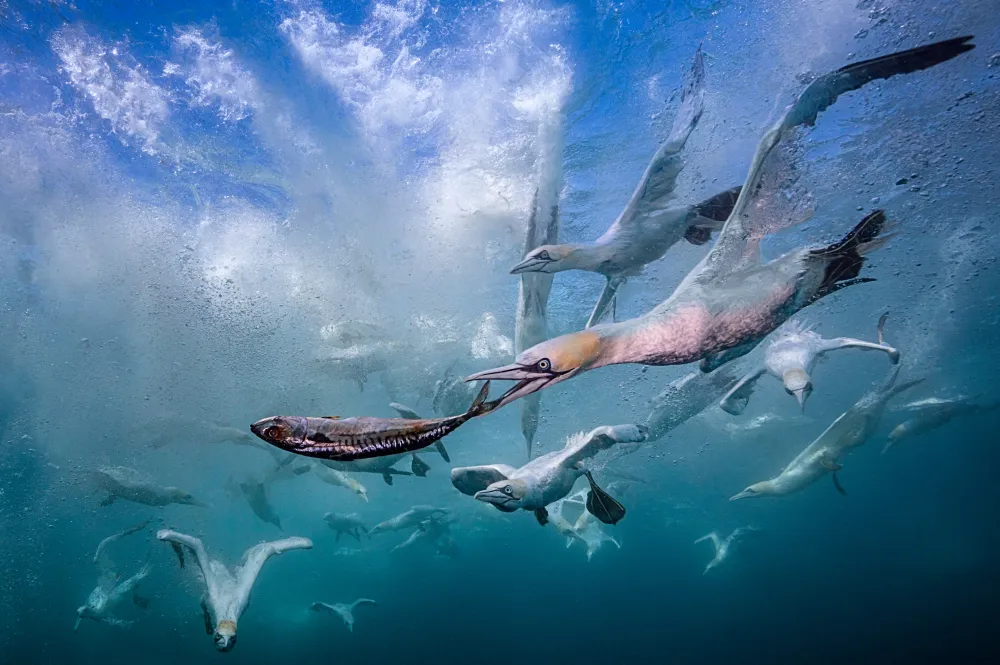Heatwaves Affecting Marine Life

This year’s summer in the UK (2025) has been provisionally declared the warmest on record, with the average temperature reaching 16.10°C, surpassing the previous record of 15.75°C.1 Not only does this have detrimental impacts on the wider environment, but it also affects marine life.
Marine Temperatures Rising
In addition to the climate temperature surging, ocean temperatures are also on the rise – with 2024 seeing the highest global ocean temperature on record. Driven by climate change, sea temperatures are increasing as they absorb excess heat from the atmosphere, also causing water levels to rise.
This has a detrimental impact on marine life, which could ultimately threaten many marine species.
The Problem for Plankton
Marine heatwaves affect plankton; organisms that are essential for the ecosystem and are the basis of the ocean food chain. However, increases in sea temperature mean that plankton productivity decreases, as warmer water is less dense and reduces the vertical mix of nutrients, which plankton needs for growth. This means that the organisms are less energy rich and harder to find, causing issues for those animals that use plankton as a primary food source.
In addition to a decrease in the overall plankton numbers, the remaining plankton tend to migrate to areas of cooler sea temperature, leading to less food for the various marine species that rely on them. This affects the entire food chain, threatening the biodiversity and stability of ocean ecosystems.
Impacts on Marine Birds
Marine heatwaves often have the biggest effect on the top section of water, meaning fish migrate to deeper and cooler waters, which some birds, such as puffins, are unable reach. Being unable to dive to such depths results in birds having to resort to feeding on less energy rich food – meaning they have less energy and in turn are less resilient to future heatwaves.
Ultimately, this results in reduced breeding activity which has a detrimental effect on population.
Solving the Issue
Reduce Emissions
As with most environmental issues, the solution lies with reducing greenhouse gas emissions and cutting out reliance on fossil fuels. Fossil fuels heat the atmosphere around us, leading to warmer oceans, which stress and destroy the fragile underwater ecosystems.
A transition away from fossil fuels is critical and involves investing in renewable energy sources and developing more efficient energy storage solutions.
Ocean Conservation
UK conservation of oceans is essential for preserving marine habitats and life. Creating marine protected areas that restrict human activities to safeguard habitats can help to preserve endangered species and nurture biodiversity and ecosystems.


